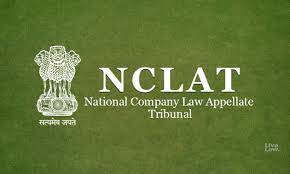In a significant development, the Supreme Court observed that the National Company Law Appellate Tribunal (NCLAT) has the power to ‘recall’ the judgements but not ‘review’. This landmark ruling, delivered by the Supreme Court of India, settles a long-standing debate and establishes a clearer framework for the resolution of corporate disputes.

NCLAT Lacks Power to Review But Holds the Power to Recall Their Judgments, Affirms Landmark Ruling
The ruling affirms that once the NCLAT passes an order or judgment, it becomes final and binding, with no provision for a subsequent review.
In June 2024, a bench comprising five NCLAT members, namely, Justice Ashok Bhushan (Chairperson), Justice Rakesh Kumar (Judicial Member), Justice Rakesh Kumar Jain (Judicial Member), Dr. Alok Srivastava (Technical Member) had observed that the NCLAT does not possess the power to review judgements, but has the power to recall the same by invoking its inherent powers under Rule 11 of the NCLAT Rules, 2016; this does not include re-hearing of the case to find apparent errors in judgements.
The Supreme Court’s decision came in response to a case where an appeal was filed in Union Bank of India v Financial Creditors of M/s Amtek Auto Limited & Ors. wherein the Union of India had appealed against the NCLAT’s order of the NCLAT’s power being limited to recalling judgements and not reviewing them in June 2024. The argument had been that the order does not lay down the correct law.
The apex court decisively rejected this contention and refused to interfere with the NCLAT’s ruling and reaffirmed their order, holding that the NCLAT has the power to recall judgements and this is limited to procedural errors or fraud played on Court while obtaining the Court’s order.
This ruling carries significant implications for corporates, as they can now have greater confidence in the finality of NCLAT judgments, reducing the risk of prolonged disputes. On the other hand, companies will need to ensure their arguments and evidence are compelling, as they will not have the option of seeking a review if the judgment goes against them.
Experts in the legal and corporate sectors have expressed mixed reactions to the judgment. Some laud the clarity it brings to the dispute resolution process, as it streamlines proceedings and minimizes delays. However, others caution that the ruling could potentially limit access to justice for companies facing unjust or erroneous decisions. They argue that without the avenue for review, instances of miscarriages of justice could go unaddressed, leading to potential economic ramifications.
Legal scholars and practitioners have already begun exploring alternative options to address concerns about the lack of review. One potential avenue could be an appeal to higher courts, such as the High Court or the Supreme Court, under the provisions of the IBC. Such appeals could allow parties to seek a fresh examination of their case by a higher judicial authority, ensuring the pursuit of justice without unduly burdening the lower tribunals with review petitions.
It is essential for businesses and legal representatives to stay informed about the implications of this ruling. The finality of NCLAT judgments emphasizes the importance of due diligence, meticulous preparation, and skilled representation during corporate dispute resolution proceedings.
In conclusion, the Supreme Court’s landmark ruling that NCLAT lacks the power to review but holds the power to recall their orders brings clarity and finality to India’s corporate dispute resolution process. While it offers more stability to creditors, concerns remain about potential limitations on access to justice. As the legal community adapts to this paradigm shift, it becomes crucial for businesses to be proactive in their approach to cases and ensure they present compelling arguments during proceedings.











